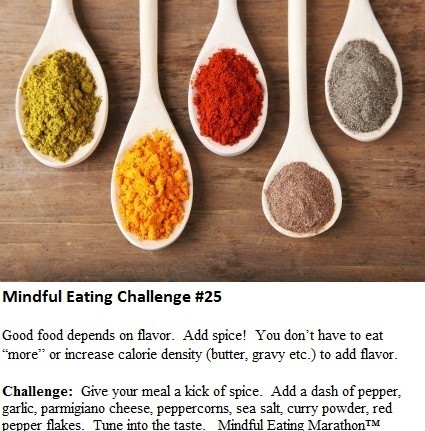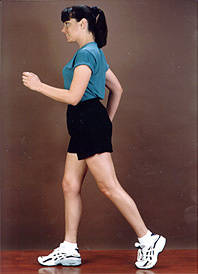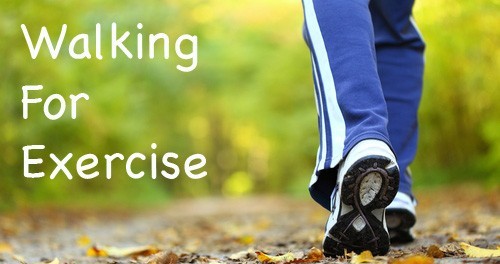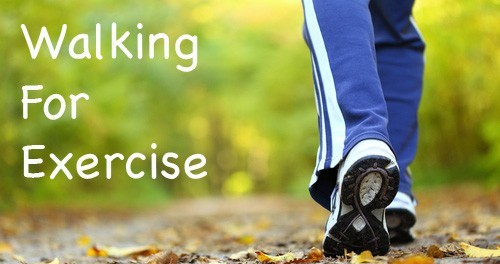Walk Talk Series
Day 11 – Stride – Flavor without Fat
How are you doing today?
Rewards
What reward do you prefer for finishing an organized goal? How do you celebrate your achievements? Do you let others see what you have achieved? Start thinking of ways to reward yourself that does not include food. Add it to your list with your goal written down.
Flavor Without Fat
So, here you are with that skinless chicken breast again – what to do to make the meal more exciting? One problem is that fat contributes a lot to the flavor, it acts as the medium that carries aromatic flavors. When you go onto a lower fat diet, you may find foods dull and boring, especially if you are also reducing sodium. Time to turn to herbs, spices, and condiments that are still low in fat.
Low-fat doesn’t have to be dull. If you are switching to a low fat diet, add more seasonings.
Here are some good ones to add: 
- Fresh ground black pepper
- A squeeze of fresh lemon or lime juice.
- Mustard – there are hundreds of varieties from hot to sweet to smoked.
- Horseradish or wasabi for a real jolt of heat.
- Tabasco or other red pepper sauce
- Catsup
- Salsa or taco sauce
- Rosemary or sage enliven chicken wonderfully. Rub some on before cooking.
- Dill for fish
- Garam Masala – a spice blend from India Curry powder
- Flavored salts – look in the spice aisle for Cajun salt, Italian seasoning salt, etc.
- Oregano, basil, and garlic for Italian seasoning.
- Cumin, cilantro, onion, red pepper for Mexican seasoning
- Soy sauce, ginger, garlic for oriental seasoning
- Wasabi, pickled ginger, soy sauce, rice vinegar for Japanese seasoning/condiments.
- Fruit chutney
- Use nonfat chicken broth to boil noodles, saute vegetables.
20-40 minute walk at a comfortable pace, concentrating on your walking form.
Start with checking your posture.
Warm up with 5 minutes at a very easy pace.
Stretching 5 minutes.
Now resume your walk at a comfortable pace.
Use your arms.
Think of rolling through each step, striking with the heel, pushing off with the toe.
Today we will work on the stride.
End with 5 minutes of gentle stretching.
Walking Form
Did you notice anything in your walking posture you will need to work on during yesterdays lesson or your walk?
It can be a little tough at first to change the way you walk. But as you become more conditioned you will develop a stronger stride and improve your overall fitness and reap the results.
Stride Avoid over-striding
Are you Over-striding? To walk faster, many people take longer steps. This increase in stride length actually slows them down, over arches the back, and creates more bounce and compression into the joints. Warning signs of Over-striding include: a bouncy or noisy walk with heel, knee or low back pain which increases during or after walking.
- Take more, smaller steps rather than lengthening your stride.

- Your stride should be longer behind your body, where your toe is pushing off, rather than out in front of your body.
- Your forward leg has no power, while your back leg is what is driving you forward.
- Getting the full power out of the push from the back leg as it rolls from heel to toe is the key to powerful, efficient walking.
Taking longer steps to increase speed, is counter productive and potentially harmful to your back if you try to increase the length of your stride by taking longer unnatural steps. Speed and efficiency in walking are generated by hip flexibility and quicker, not longer, steps.





